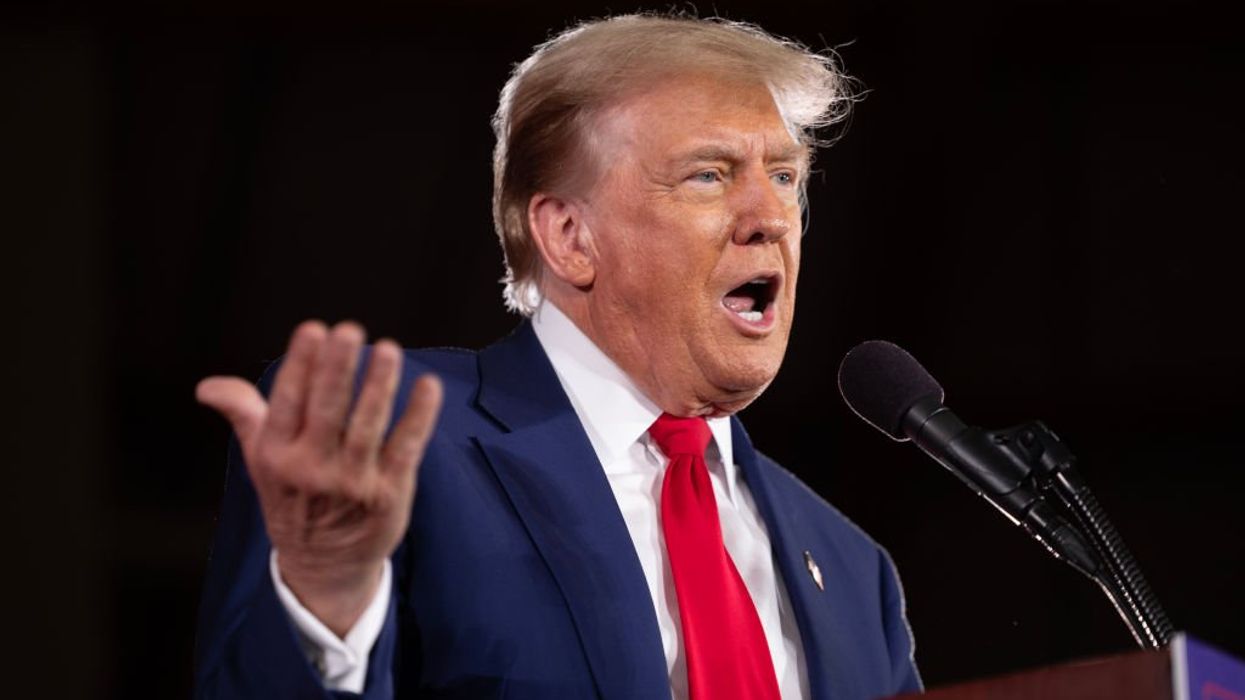
Photo by Scott Olson/Getty Images

Special Counsel Jack Smith admits files recovered from Mar-a-Lago shifted out of order.
On Tuesday, United States District Judge Aileen M. Cannon indefinitely postponed the trial date for the classified documents case against former President Donald Trump.
Trump was charged with 40 criminal counts for allegedly maintaining sensitive records after he left the White House in January 2021. He was also accused of obstructing the federal government's attempts to retrieve the papers.
"It never occurred to us ... that the prosecution team could not be trusted to perform the basic task of maintaining the integrity of such evidence."
In August 2022, the Federal Bureau of Investigation executed a raid at Mar-a-Lago, Trump's Florida estate. Photographs from the search shared with the public showed disorganized stacks of redacted documents and colored cover sheets.
According to a recent court filing, the cover sheets were positioned and photographed by the FBI as placeholders for alleged sensitive documents.
Blaze News investigative journalist Steve Baker stated, “The fact that the DOJ prosecutors or FBI investigators might ‘jumble’ or ‘manipulate’ evidence is hardly a surprise — especially considering what we’ve seen over the last three-plus years since January 6. I’ve personally witnessed and reported on the manipulation, embellishment, and even the purposeful exclusion of exculpatory evidence while covering high-profile J6 trials. The Department of Justice has often done this — seemingly in coordination with the assigned judges — including irrefutable subornation of perjury by federal police officers in the first Oath Keepers trials.”
United States Department of Justice Special Counsel Jack Smith wrote, "If a box contained potentially privileged material and fell within the scope of the search warrant, the filter team seized the box for later closer review. If a box did not contain potentially privileged documents, the filter team provided the box to the investigative team for on-site review, and if the investigative team found a document with classification markings, it removed the document, segregated it, and replaced it with a placeholder sheet."
"The investigative team used classified cover sheets for that purpose, until the FBI ran out because there were so many classified documents, at which point the team began using blank sheets with handwritten notes indicating the classification level of the document(s) seized," he added.
Additionally, Smith admitted that the FBI "was not focused on maintaining the sequence of documents within each box." Since the boxes have been seized, certain personnel have had access to them.
"[T]here are some boxes where the order of items within that box is not the same as in the associated scans. There are several possible explanations, including ... the size and shape of certain items in the boxes possibly leading to movement of items. For example, the boxes contain items smaller than standard paper such as index cards, books, and stationary, which shift easily when the boxes are carried, especially because many of the boxes are not full," Smith wrote in a recent court filing.
A footnote added, "The Government acknowledges that this is inconsistent with what Government counsel previously understood and represented to the Court."
On Tuesday, Trump's attorneys filed a motion in response to the new admission.
Trump's lawyers wrote, "President Trump and counsel are deeply troubled to be learning of these facts approximately 11 months after the charges were filed in this case. The May 3, 2024, disclosures by the Special Counsel's Office raise questions about the investigation and the handling of evidence that must be addressed before the matter proceeds."
"It never occurred to us, until last Friday, that the prosecution team could not be trusted to perform the basic task of maintaining the integrity of such evidence despite the expansive resources at their disposal," Trump's defense team wrote. "[I]t is likely that President Trump will file additional motions for sanctions based on spoliation, including a motion to dismiss the charges if the Office cannot prove in a reliable way how it seized and handled the key evidence in the case, which will be a central issue at any trial."
On Tuesday, Cannon moved to postpone the trial date, stating that it would be "imprudent" to schedule a date before addressing the pre-trial motions.
"The Court therefore vacates the current May 20, 2024, trial date (and associated calendar call), to be reset by separate order following resolution of the matters before the Court, consistent with Defendants' right to due process and the public's interest in the fair and efficient administration of justice," Cannon wrote in her decision.
Like Blaze News? Bypass the censors, sign up for our newsletters, and get stories like this direct to your inbox. Sign up here!